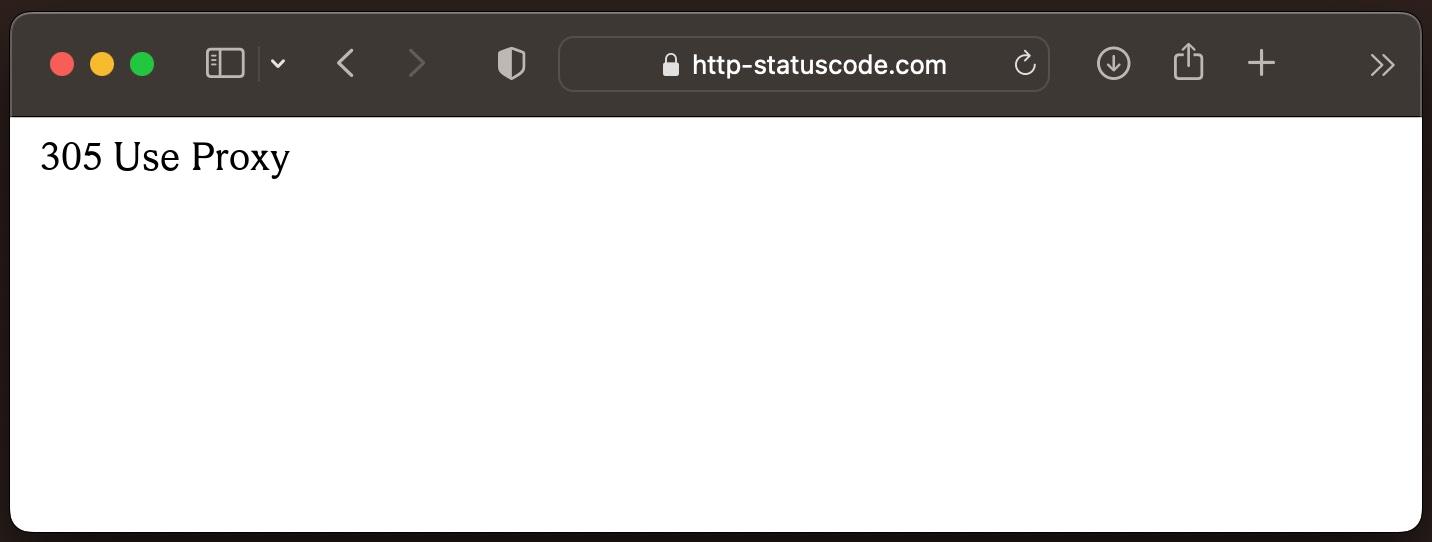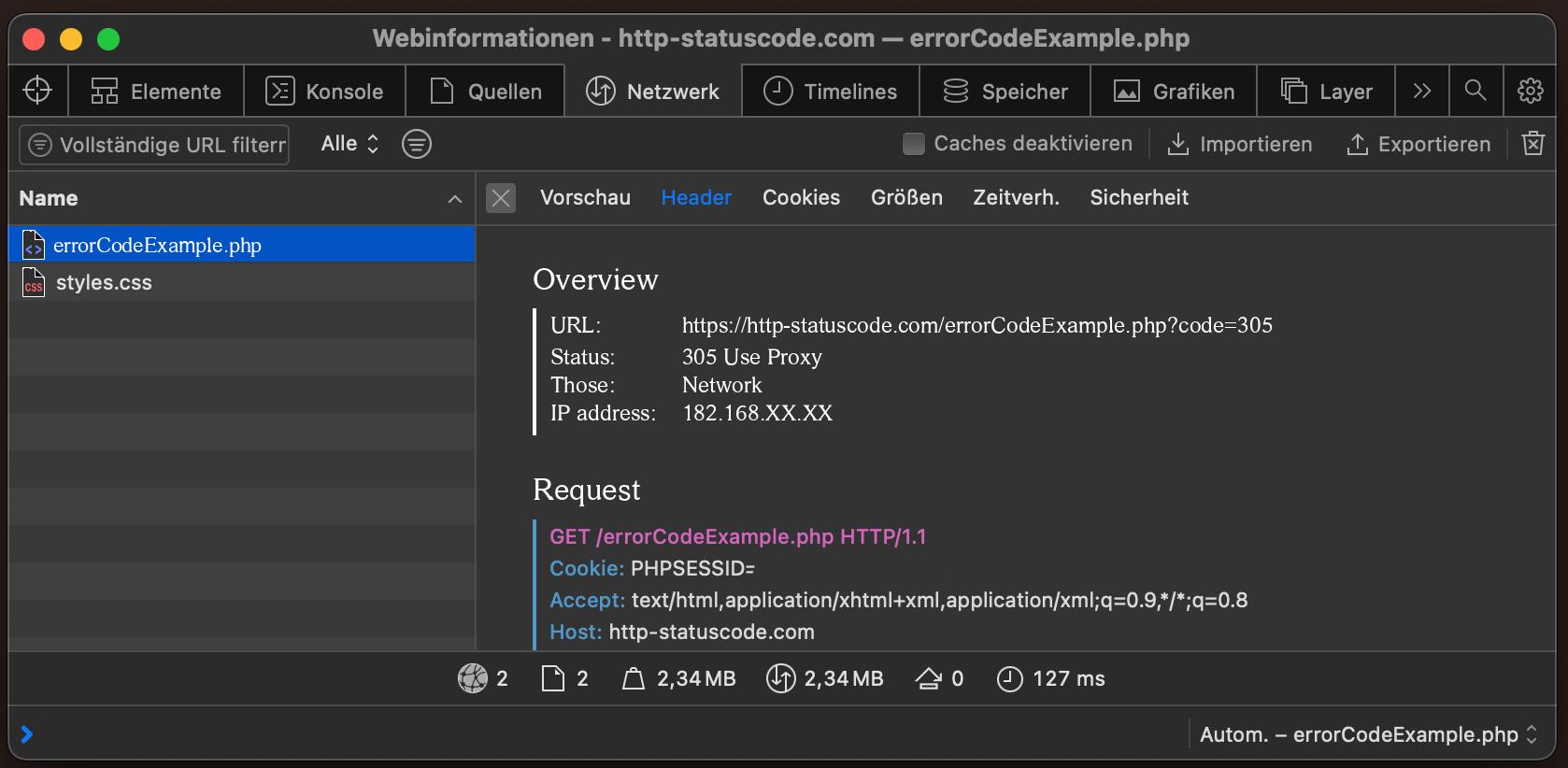305
Use Proxy
Specification of the HTTP status code 305
The 305 Use Proxy status code was defined in a previous version of this specification and is now deprecated (Appendix B).
Source / Quote by: The 305 Use Proxy HTTP Status Code is specified by section 6.4.5 of RFC7231.
HTTP-Protocol
How to throw a 305 statuscode with PHP?
To throw the HTTP status code 305 on a web page, the PHP function http_response_code can be used. The syntax is as follows: http_response_code(305) (PHP 5 >= 5.4.0, PHP 7, PHP 8)
Test the 305 HTTP status code
In order to be able to display the HTTP status code (in this case 305 Use Proxy) and other information on the client side, the development console must be opened with F12. Afterwards you have to navigate to the tab "Network". Now you can open the page, in the network tab you should see the web page (example index.php). This must be selected and then the Herder section must be selected. Here the user will see the following result:

URL: https://http-statuscode.com/errorCodeExample.php?code=305
Status: 305 Use Proxy
Those: Network
IP address: XX.XX.XX.XX

Browser compatibility of the 305 status code
| Chrome | no data |
| Edge | no data |
| Firefox | no data |
| Opera | no data |
| Safari | no data |
| Chrome Android | no data |
| Firefox for Android | no data |
| Opera Android | no data |
| Safari on iOS | no data |
| Internet | no data |
| WebView Android | no data |
